The paper used in this publication meets the minimum requirements of the American National Standard for Permanence of Paper for Printed
Library Materials Z39.48-1984.
FRONTIS: October 1959 in recording studio.
Photo: Don HunsteinSony Music Entertainment.
Acknowledgments
THIS BOOK is the fruition of a lifelong dream, and there are many people to thank for making it a reality. I would like to thank Lou and Karen Robin for arranging my first meeting with Johnny and June; John Carter Cash for his approval of this book; Rosanne Cash for her generous comments, and especially Larry Gatlin for always being an inspiration and friend to me.
To my daughters, Amanda and Samantha, and my son Johnny, who was named after the Man in Black, and most importantly my wife Denise, for her love, guidance, and invaluable help in putting this book together.
To my father Alex and my uncle Albert Alexander for passing down their love of music; to my cousin Laila Khoury for her faith in me as an author; Paul Khoury for all his insightful ideas and observations; Lloyd LaRousse, my friend and fellow Cashologist, for his remarkable eye for photos; Robert Rich and Vincent Rohan for their encouragement and sound advice; John Lamberton, Richie Merhige, Mark Hamwi, Robert Shaouy, and Thomas Mayrose for patiently listening to me talk about Johnny Cash for so many years; Father Paul Schneirla and Father Michael Ellias for their friendship and spiritual guidance.
Also: J. Dozier Hasty, Jim Bessman, Peter Lewry, Matt Lindsey, Allen Reynolds, Shelby Singleton and John Singleton at Sun Records, Earl Thomas Conley, Fred Conley, Mitchell Sirls, Michael Sirls, Rick Peoples, John L. Smith, Michael Streissguth, Don Murry Grubbs, Randy Howard, Tracy Parker, Steve Cooper, Karen Cunningham, Lisa Grauso, Toby Silver and Tom Tierney at Sony Music, and David Scott Cunningham at the University of Arkansas Press.
And finally, to Johnny Cash whose songs and stories inspired a chubby little boy from Brooklyn to develop a lifetime love of music and literature.
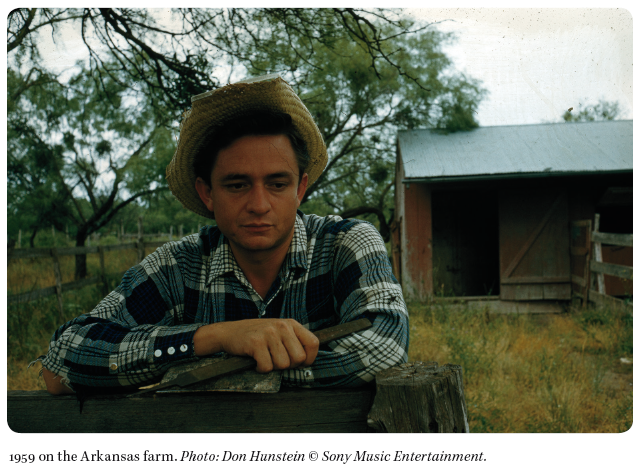
A Foreword from Larry Gatlin
Dear Folks,
J. R. was my big brother. WE called him J. R. Its J. R. on the birth certificate, so WE called him J. R. Of all the things in my life that I am thankful for, being one of the WEs in J. R.s life is in the top 10.
So when my old and good friend, J. A., asked me to write the foreword for his new book about J. R., Johnny Cash, The Man in Song, I said, YESSIR!! I must admit that I whispered under my breath something like, What the world really needs right now is yet another book about Johnny Cash. And if it hadnt been my old friend J. A. doing the asking, I would have probably said, NOSIR!!
I was sitting up in bed watching ESPN and Fox News when Janis walked into our bedroom and pitched yet another book about Johnny Cash in my lap. I dutifully picked it up and began to thumb through it. Before long, the thumbing turned to browsing. Not long after that, the browsing turned to reading, then to laughing, crying and devouring, then to joy, enlightenment, and gratitude gratitude to God for making J. R. my big brother, for allowing me to be one of the WEs in his inner circle, and grateful for J. A., who has focused a totally different light on J. R. than I have ever seen before. J. A.s yet another book about Johnny Cash is a masterpiece, written by a learned historian and renowned musicologist and an expert on Johnny Cash and his music. I give The Man in Song . You have in your hands a wonderful book, written by a true craftsman, about an American legend J. R. Cash, forever my big brother.
. You have in your hands a wonderful book, written by a true craftsman, about an American legend J. R. Cash, forever my big brother.
Keep the Faith,

Introduction
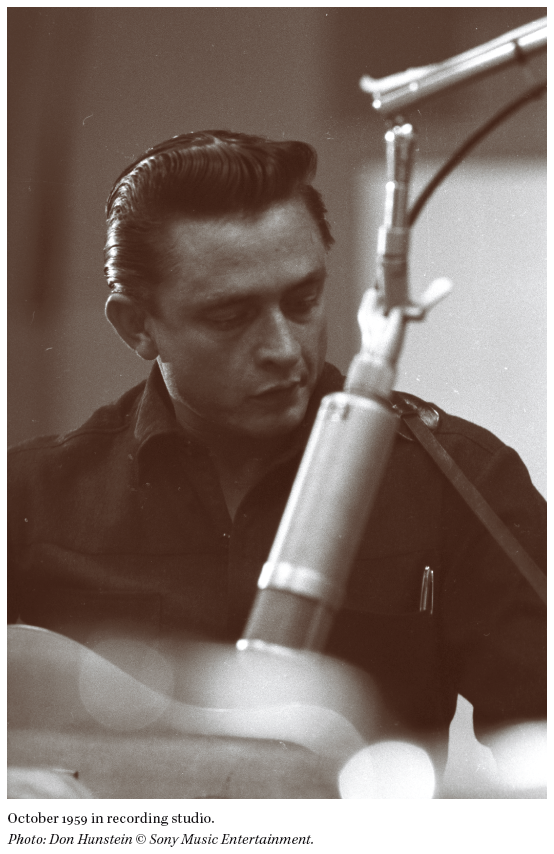
WHO WOULD HAVE DREAMED that a humble sharecroppers son would go on to become one of the most honored and beloved figures in popular music? J. R. Cash was born on February 26, 1932, in the town of Kingsland in Cleveland County, Arkansas, which is southwest of Pine Bluff. Kingsland is actually located between Pine Bluff and Little Rock. He was the fourth of seven children born to Ray Cash, a farmer, and his wife, Carrie Rivers Cash. The Cash children were older brothers Roy and Jack, older sister Margaret Louise, and younger sisters Reba Ann and Joanne and baby brother Tommy. In 1935, when Cash was three years old, the family moved to Dyess, Arkansas. It was here that he started accruing material for the songs he would later write that were steeped in the cold, hard realities of the Great Depression.
J. R. would ultimately be known as Johnny Cash and would go on to sell more than fifty million albums in forty years and one day receive the prestigious Kennedy Center Honors. He was, and is, an American treasure who holds the distinction of being the only performer inducted into the Rock and Roll Hall of Fame, the Country Music Hall of Fame, the Songwriters Hall of Fame, and the Gospel Music Hall of Fame. Hed certainly come a long way from those hot and stifling fields where he picked and chopped cotton during the Great Depression. And the road was often a weary one. His mother always believed that God had anointed her son and that he was destined for greatness.
The one saving grace during those early, tumultuous years was the music that came flowing out of the family radio. Johnny loved to listen to the songs that carried him away from the burdens of daily life in the cotton fields. As he would later recall, he listened to the radio by the coal-oil light until he fell asleep with what little contentment he could find from the songs of the day. Of course years later his mothers faith in him would be rewarded with an amazing career built on his love of music. And, in as much as the man defined the songs he wrote and selected, the songs also helped define the man.
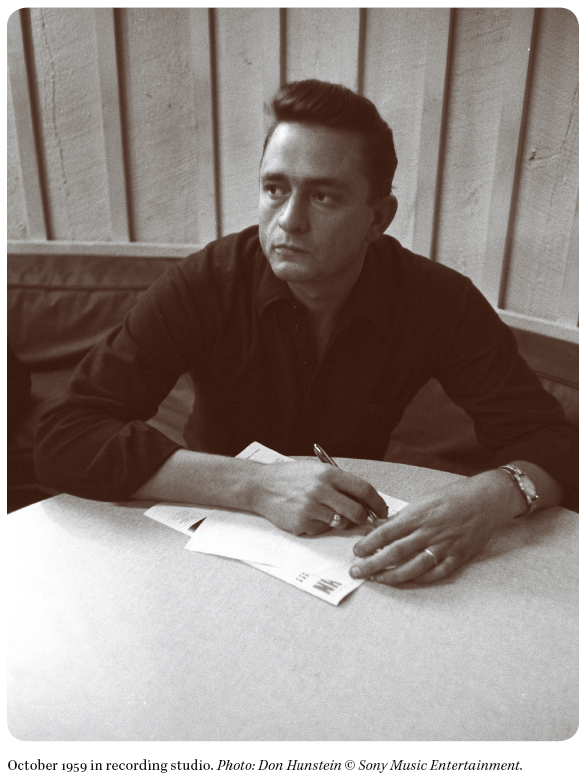
Many books have been written about the life of Johnny Cash. His trials and tribulations, his bouts with drugs and painkillers, his marriage to his first sweetheart Vivian Liberto, the birth of their four daughters Rosanne, Kathleen, Cindy, and Tara, his romance with and marriage to the love of his life, June Carter, and the birth of their son John Carter Cash. But through it all, its the incredible catalog of songs that ultimately defines the true artistry of the man.

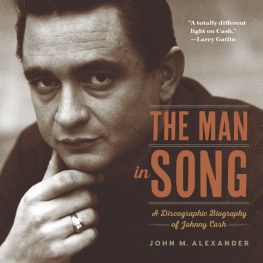

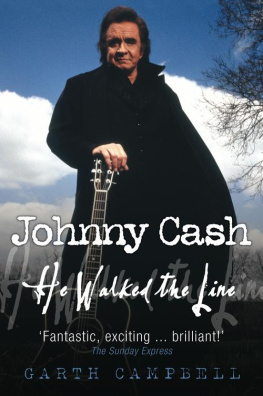
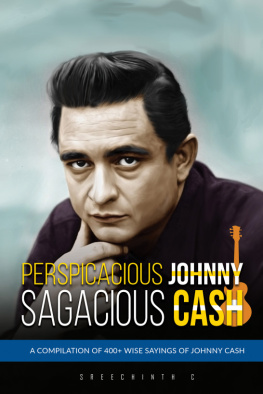
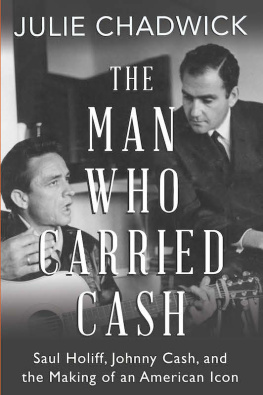
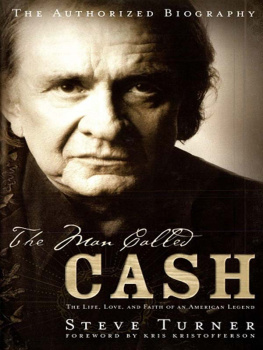
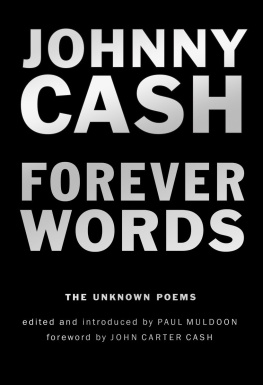
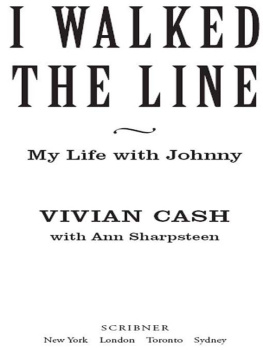
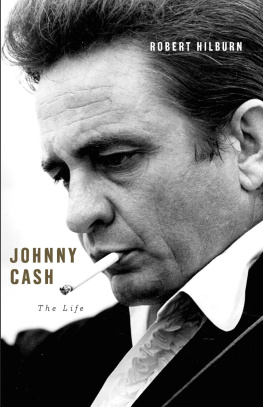

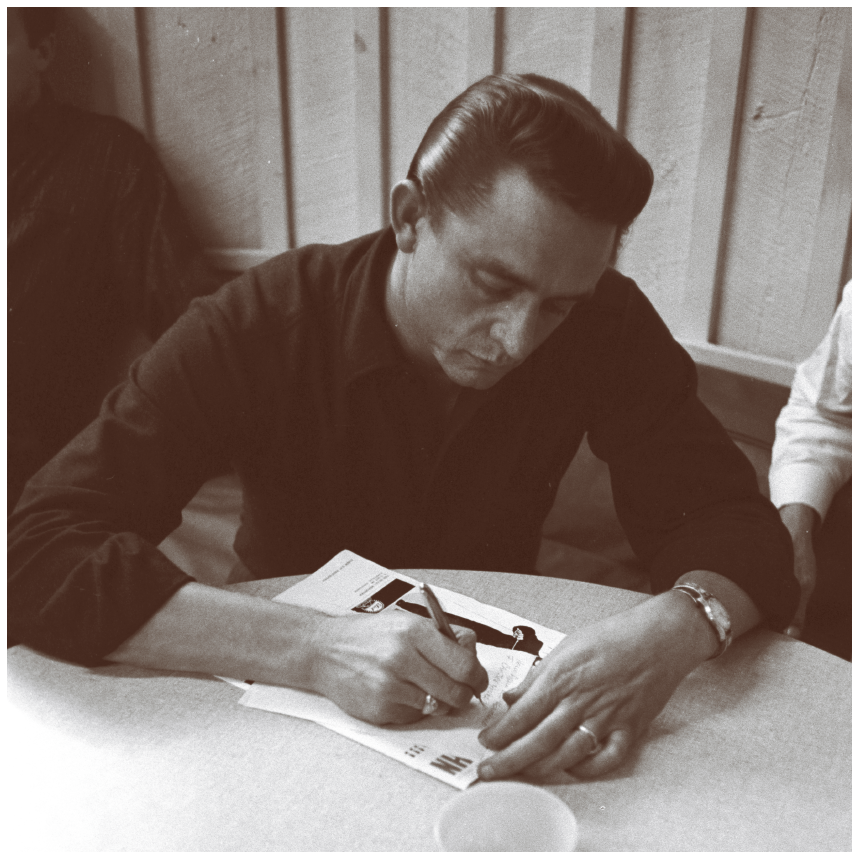

 . You have in your hands a wonderful book, written by a true craftsman, about an American legend J. R. Cash, forever my big brother.
. You have in your hands a wonderful book, written by a true craftsman, about an American legend J. R. Cash, forever my big brother.

